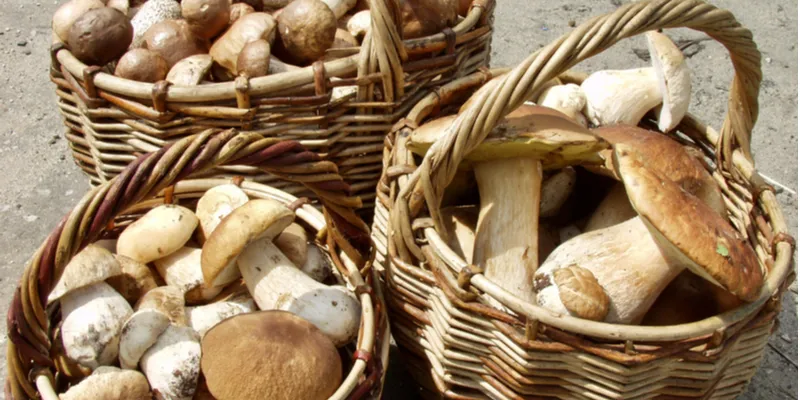Diet and mental health: Here's how to manage your moods and feel good with the right foods
If you have been struggling to cope with the lockdown, there are certain foods can help you feel better, says our nutritionist. Add them to your diet for health and wellbeing
Have you ever struggled with anxiety? Do you know someone who battles with depression or has any diagnosed mental health challenge? I think when it comes to something like anxiety, we all struggle with it at some point. The concern is if it persists or if it overwhelms life itself.
Mental health challenges are growing every day. It can affect our dear friends, close family, and even ourselves. The truth is, there are many things to think about when it comes to the balance between food and lifestyle and your mental health.
The first step involves checking if your diet is right. If you are eating a diet that is high in inflammatory foods such as gluten, dairy, sugar and alcohol, they can actually create deficiencies, which then manifest as mental symptoms.
When inflammatory foods and nutrient deficiencies come together, they can become root causes for mental health challenges. Not many people may agree with this, but it’s definitely something to look into.
The second step involves looking at how can food support you, even if you have a diagnosed mental health condition. There can be many foods that are helpful in reducing inflammation and improving nutrient sufficiency, and these can be deeply supportive.
Here are some of my diet recommendations:
Fishy tales

Fatty fish can improve mental health
While you might have heard that fish is great for mental health, many people do not actually agree with this. The concern is that farmed fish and many large fish are high in mercury, which can contribute to toxic overload and thereby, increase brain inflammation. But, if you buy local, fresh and oily fish like sardines, then they can be very helpful to your brain and mental health.
Fish is rich in omega-3 essential fatty acids. It is simply alarming how many people are deficient in omega-3 and therefore struggling with anxiety and depression. While some vegans might consume algae instead, it is important to know that algae are also a potential source of mercury.
If you do not mind eating fish, then adding it to your diet a few times a week can be very helpful.
Go Bananas

Bananas can maintain electrolyte balance in the body
The good old banana is a wonder fruit. Not only does it drastically improve digestion, it is also loaded with nutrients. Improving gut health is critical to mental health.
Bananas are rich in potassium which help maintain the electrolyte balance. Their sugars are released slowly in the body. Blood sugar balance is also the key to mental stability. It helps activate cells that build the stomach lining and soothe the mucosa, helping to lower inflammation.
Bananas also help eliminate pathogenic bacteria from the gut, feed beneficial bacteria, improve dysbiosis and support microbial balance, all of which play a key role in mood and mental health. The best way to consume them is to eat them an hour before your meal, where they act like a prebiotic, helping to improve digestion of the meal that follows.
Super saffron

Saffron can improve circulation and support overall brain health
The beautiful threads of saffron are truly worth their weight in gold. Saffron has been used in herbal medicine protocols for their anti-depressant properties. I recall soaking a few saffron threads in water in milk, and watching the whole milk turn a gorgeous shade of yellow!
The aroma of saffron is simply fantastic! It is a potent phytonutrient and antioxidant. The phytonutrients in saffron can be helpful in treating insomnia and easing depression. It has anti-inflammatory properties that improve circulation and support overall brain health. Try a glass of coconut milk with some saffron, black pepper, turmeric and honey. It tastes simply divine!
Mushroom magic

Mushrooms are anti-inflammatory and can improve your immunity
Mushrooms are anti-inflammatory and immune supportive. They are a good source of Vitamin D, which plays a key role in mental health. Shiitake mushrooms are specifically healing, as they contain fibre, protein, B Vitamins, and Vitamin D. They are antioxidants which improve mitochondrial health, combat free radical damage, improve cellular oxygenation and reduce chronic fatigue. Improving cellular function is critical to mental health.
Shiitake mushrooms also contains a compound which helps the blood from getting sticky, and improves vascular flow including to the brain and improve circulation. The challenge with mushrooms is that if you suffer from frequent yeast infections, they can be a potential source of such problems.
Wonderful walnuts

Walnuts re full of anti-oxidants
Well, who doesn’t see the image of the brain in a walnut? The fact that it resembles the brain is testimony to how brilliant it is for mental health. Walnuts contain antioxidants and a mix of tocopherols, which are full of Vitamin E.
Vitamin E is great for vascular health. Walnuts contain serotonin, which is the hormone that keeps you happy. Serotonin is a feel-good neurotransmitter that helps you feel peaceful and calm.
They are so simple to add into food, as toppings into salads, adding it into baking or even making it into a walnut butter that can be spread onto a gluten free toast or roti. Add this brain-shaped nut into your diet and support the brain that is within you!
Edited by Asha Chowdary
(Disclaimer: The views and opinions expressed in this article are those of the author and do not necessarily reflect the views of YourStory.)









